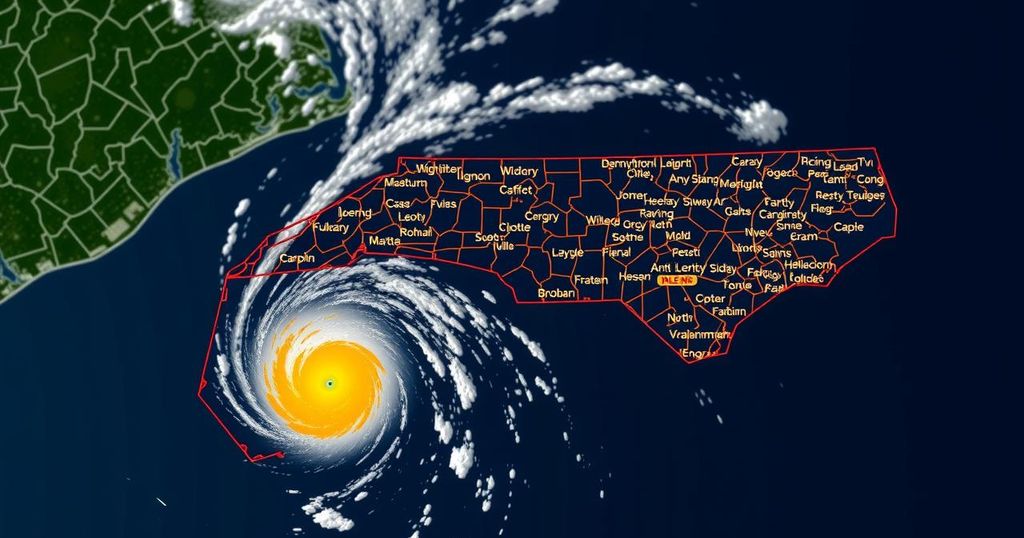The unemployment rate in Buncombe County, North Carolina, surged from 2.5% to 8.8% post-Hurricane Helene, resulting in a loss of over 8,000 jobs. Particularly impacted are the leisure and hospitality sectors, with extensive infrastructure damage hampering recovery. Real estate sales have also declined significantly. Assistance programs are available, though recovery is expected to be lengthy.
The impact of Hurricane Helene on North Carolina’s economy has become increasingly evident as unemployment statistics reflect a dramatic rise in joblessness within the affected areas. Notably, Buncombe County experienced a surge in its unemployment rate from 2.5% in September to 8.8% by October, indicative of the severe repercussions of the storm. The Asheville metropolitan region, heavily affected by excessive rainfall and flooding, witnessed an estimated loss of over 8,000 jobs within this short timeframe, particularly in the leisure and hospitality sectors, which are integral to the local economy.
The storm’s aftermath has posed significant challenges for local businesses, with many struggling to recover from the extensive damage inflicted on infrastructure and services. Despite the dire situation, Scott Martin, a market expert, expressed that while the trend of increasing unemployment will be difficult to reverse in the immediate future, a pathway to recovery remains feasible. However, various annual events critical to tourism, such as leaf-peeping and Christmas tree picking, have been impacted due to unsafe conditions, further stressing the local economy.
Additionally, the real estate market has suffered a notable decline, with home sales estimated to be down approximately 30% compared to the same period last year. Although recovery efforts are underway, they are anticipated to take considerable time, potentially extending well into 2025. Businesses and residents affected by Hurricane Helene may seek low-interest disaster loans from the U.S. Small Business Administration, alongside potential additional aid currently being considered by the state legislature.
Hurricane Helene, which struck on September 27, 2023, was categorized as a Category 4 hurricane, making landfall in Florida before proceeding northward, causing catastrophic flooding throughout the Southeast. The storm has resulted in significant loss of life and extensive property damage. As a direct consequence, the economic landscape of regions like Asheville in North Carolina is facing adverse conditions, particularly evident in rising unemployment statistics and job losses in critical sectors such as tourism and hospitality. Furthermore, ongoing recovery efforts are hindered by infrastructure damage and economic instability, prompting the need for disaster relief and assistance programs.
In summary, the state of emergency following Hurricane Helene in North Carolina has revealed critical economic repercussions, notably a sharp rise in unemployment rates and substantial job losses, particularly within the tourism industry. Even as local governments and organizations work towards recovery, the path remains challenging with prolonged impacts likely throughout 2025. Through federal assistance programs, support for businesses and residents in need may alleviate some immediate burdens, although a full economic recovery will require considerable time and resources.
Original Source: www.foxweather.com







